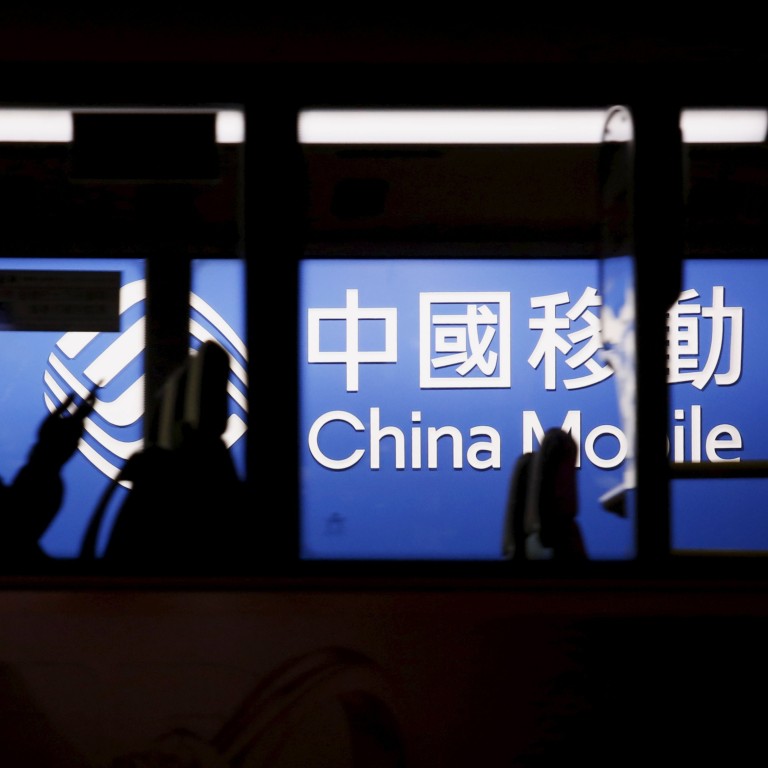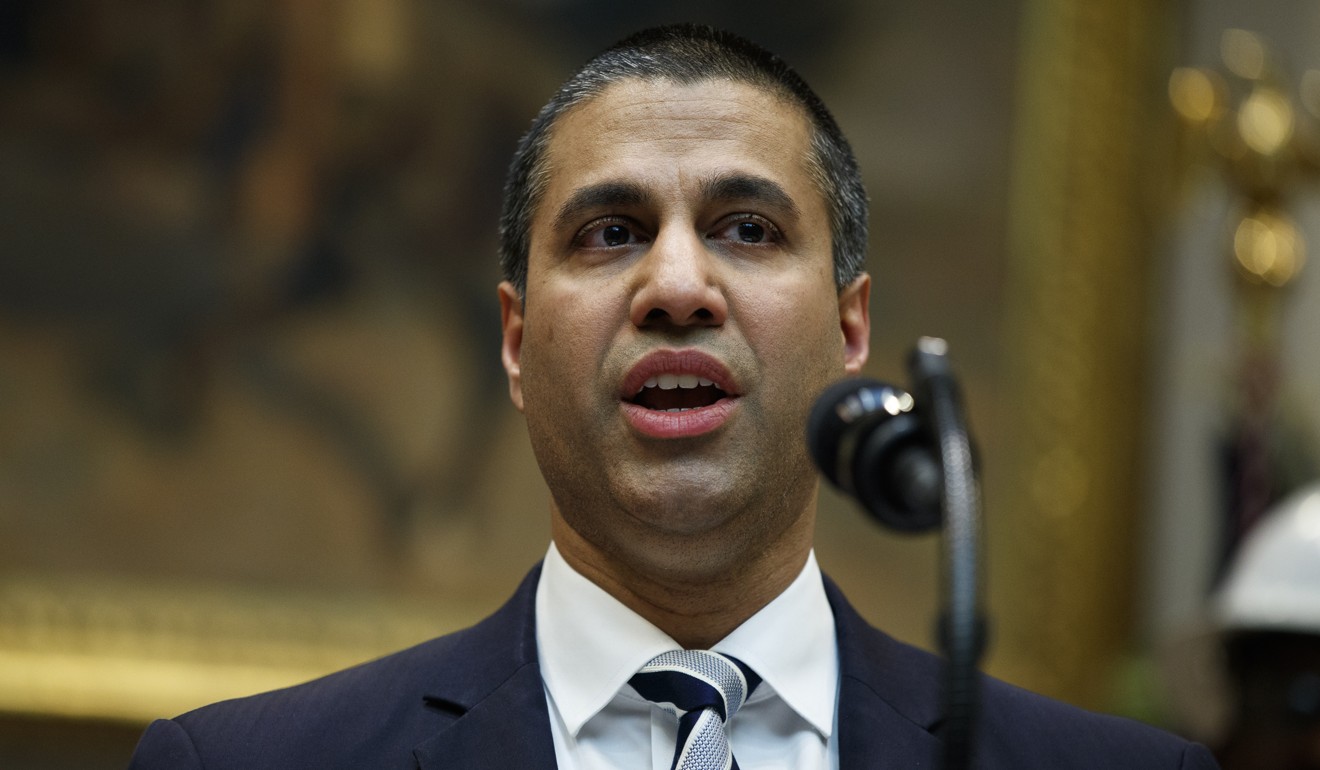
Federal Communications Commission chief Ajit Pai moves to block China Mobile’s entry into US market, citing ‘substantial’ national security risks
- Operator is seeking approval to be listed as a ‘common carrier’ that would enable it to carry international voice traffic between the US and foreign countries
- White House has shown concern over Chinese law that requires companies to cooperate with state intelligence agencies
The top US communications regulator has urged the rejection of China Mobile Ltd’s application to provide telecommunications services in the American market, opening another front in the trade war between the world’s biggest economies.
Federal Communications Commission (FCC) Chairman Ajit Pai said on Wednesday that he was scheduling a vote on May 9 on a measure to deny the application of China Mobile USA, described as a Delaware-registered subsidiary that is indirectly controlled by the Chinese government, on national security grounds.

Parent company China Mobile is the world’s largest cellular phone operator by customers, with about 899 million subscribers. China Mobile is seeking approval to be listed as a “common carrier” that would enable it to carry international voice traffic between the US and foreign countries, and to connect that traffic with the US telecommunications network. China Mobile told the agency it would not provide domestic telephone or mobile services in the US.
“Safeguarding our communications networks is critical to our national security,” Pai said in an emailed statement. “After reviewing the evidence in this proceeding, including the input provided by other federal agencies, it is clear that China Mobile’s application to provide telecommunications services in our country raises substantial and serious national security and law enforcement risks.”
Why 5G is going to change the way we live and work
The White House’s concern focused on Chinese law that requires companies to cooperate with state intelligence agencies, which the US has said could be used for economic espionage or intelligence activities. China Mobile’s size and technical resources make it particularly vulnerable to such demands, the government said.
The National Telecommunications and Information Administration, a branch of the US Commerce Department, last year urged the FCC to block China Mobile’s application, saying its entry into the market “would pose unacceptable national security and law enforcement risks”.
China Mobile told the US government it would not be required to comply with such requests and said it “is no more vulnerable to exploitation” than any other US or foreign carrier that uses “best practices” measures.
The FCC staff read both the government filing and China Mobile’s responses and recommended that the commission reject the request.
Pai, an appointee of US President Donald Trump, urged his colleagues on the commission, which has a Republican majority, to deny the application first filed in 2011. Pai has circulated a draft order to fellow commissioners after a recommendation in July from the US intelligence community and executive branch agencies that the bid be denied.
Should the commission vote to reject China Mobile’s application, the company can ask a federal court to review that decision. There was no immediate response to a query sent to China Mobile’s press email.
The FCC is still considering whether to allow Huawei Technologies to operate in the US and is awaiting a recommendation from the White House. The move against China Mobile comes as Trump is pressing to end a trade war with China that has enveloped a range of goods, including agricultural products and medical equipment, and rattled financial markets.
Why the US government sees China Mobile as a national security threat
High on the list of Trump’s priorities as he tries to close a trade deal with counterpart Xi Jinping is making sure China faces consequences if it does not live up to its promises. Yet in pursuing that goal Trump may also be giving China a new cudgel to use on American companies and striking another blow to the international rule of law.
Treasury Secretary Steven Mnuchin has said the US has made its own commitments to China and agreed that both sides would be subject to an enforcement mechanism.
“This will be a two-way agreement in enforcement,’’ Mnuchin said on Monday, after saying over the weekend that the US would be open to “certain repercussions”.

